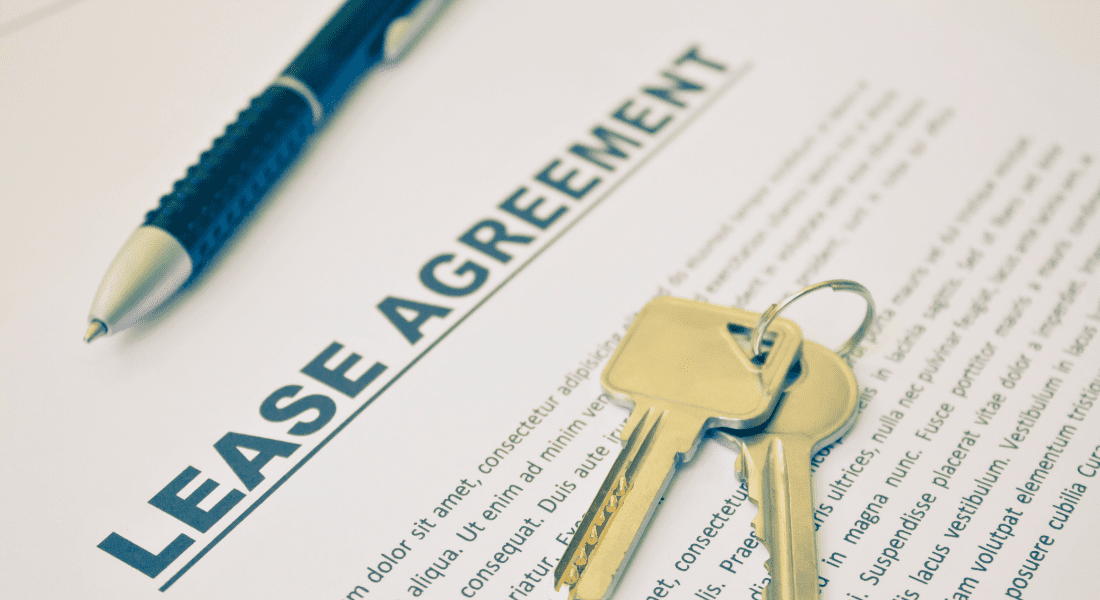Can a landlord break a lease early without consequences? It’s a common concern, that breaking a lease can lead to various complications for both landlords and tenants. You need to understand the legal requirements to know your rights, but navigating the process can be overwhelming.
This blog offers clear explanations and practical solutions to help you navigate lease terminations with confidence. Dive into our blog to gain a better grasp of these important issues and ensure you’re prepared to handle lease terminations effectively.
Table of Contents
ToggleWhat Is a Lease And Why Is It Important:
A lease is a legally binding contract between a landlord and a tenant that grants the tenant the right to occupy and use a property for a specified period in exchange for rent payments. It outlines the rights and responsibilities of both parties during the lease term and serves as a framework for the landlord-tenant relationship.
Definition of a Lease:
A lease agreement defines the terms and conditions under which a tenant can occupy a rental property. It typically includes details such as the duration of the lease, the amount of rent, the responsibilities of the landlord and tenant, and any restrictions or rules governing the use of the property.

Components of a Lease Agreement:
Key components of a lease agreement include:
- Parties Involved: The lease identifies the landlord (property owner) and the tenant (person renting the property).
- Property Description: It specifies the address and description of the rental property being leased.
- Lease Term: The duration of the lease, including the start date and end date.
- Rent Payment: The amount of rent due, the due date, and any late fees or penalties for missed payments.
- Security Deposit: The amount of money paid by the tenant to the landlord as security against damages or unpaid rent.
- Maintenance Responsibilities: It outlines which party is responsible for maintaining and repairing the property, including any obligations for upkeep and repairs.
- Utilities and Services: Specifies which utilities and services (e.g., water, electricity, internet) are included in the rent and which are the tenant’s responsibility.
- Use of the Property: Any restrictions or rules regarding the tenant’s use of the property, such as noise ordinances, pet policies, or smoking regulations.
When Can A Landlord Break a Lease Early?
Landlords typically enter into lease agreements with the expectation that tenants will fulfill their obligations for the agreed-upon lease term. However, there are circumstances under which a landlord may need to terminate a lease early. Below is examples of situations allowing for early termination by a landlord.
Examples of Situations Allowing for Early Lease Termination:
- Tenant Non-Payment: If a tenant consistently fails to pay rent despite reminders and warnings from the landlord, the landlord may initiate eviction proceedings to terminate the lease early.
- Repeated Lease Violations: Instances of repeated lease violations, such as unauthorized alterations to the property or repeated noise disturbances, may provide grounds for the landlord to terminate the lease early.
- Sale of the Property: If the landlord decides to sell the rental property, they may include a provision in the lease agreement allowing for early termination in the event of a sale. Alternatively, state laws may dictate the process for terminating the lease in the event of a property sale.
- Major Renovations: In cases where major renovations or repairs are necessary to maintain the habitability of the rental unit, the landlord may need to terminate the lease early to facilitate the work. However, landlords must provide tenants with proper notice and adhere to any legal requirements for lease termination.
Landlords have the right to terminate a lease early under certain circumstances, such as rent non-payment, lease violations, sale of the property, or extensive repairs or improvements. However, landlords must follow legal procedures and provide tenants with proper notice before terminating the lease prematurely.
How To Terminate A Lease As A Landlord:
Breaking a lease as a landlord is a serious decision that requires adherence to legal procedures and consideration of tenant rights. Below are the specific steps landlords must follow when terminating a lease early:
Legal Process Required for Terminating a Lease Early:
- Review Lease Agreement: Before initiating the process to break a lease, landlords should carefully review the terms of the lease agreement to ensure compliance with any provisions related to early termination.
- Understand Applicable Laws: Landlords must familiarize themselves with state and local laws governing lease termination, eviction procedures, and tenant rights. Failure to follow legal requirements can result in legal disputes and financial liabilities.
Specific Steps Landlords Must Follow:
- Provide Written Notice: Landlords must provide tenants with written notice of the intent to terminate the lease early. The notice should clearly state the reason for termination and the date by which the tenant must vacate the premises.
- Explain Reasons for Termination: In the written notice, landlords should explain the specific reasons for terminating the lease early, such as non-payment of rent, lease violations, sale of the property, or the need for extensive repairs or renovations.
- Offer a Grace Period for Resolution/Move-Out: Depending on the reason for lease termination, landlords may offer tenants a grace period to resolve the issues or arrange for alternative housing. For example, landlords may provide tenants with an opportunity to pay overdue rent, correct lease violations, or find a new rental property before the termination takes effect.
- Follow Legal Procedures: Landlords must follow legal procedures outlined in state and local laws for terminating a lease early. This may include providing the required notice period, offering tenants the opportunity to cure lease violations, and filing eviction proceedings if necessary.
- Document Communication: Landlords should maintain detailed records of all communication with the tenant regarding the lease termination, including copies of written notices, correspondence, and any agreements reached between the parties.
- Seek Legal Advice if Necessary: In complex cases or situations involving disputes, landlords may benefit from seeking legal advice from a qualified attorney familiar with landlord-tenant law. Legal guidance can help landlords navigate the lease termination process and ensure compliance with applicable laws.
What Rights Do Tenants Have When a Landlord Breaks the Lease?
When a landlord initiates lease termination, tenants have specific rights and legal protections to ensure fair treatment and uphold the terms of the lease agreement. Below are the rights of tenants when facing lease termination by the landlord:
Notice Requirements:
Depending on state and local laws, landlords are typically required to provide tenants with advance notice before terminating the lease. The notice period may vary based on the reason for termination and applicable laws.
Right to Cure:
In some cases, tenants may have the right to cure lease violations or address issues leading to lease termination within a specified timeframe. This allows tenants the opportunity to rectify the situation and avoid eviction.
Right to Contest:
Tenants have the right to contest the validity of lease termination if they believe it is unjustified or unlawful. Tenants can seek legal advice and explore options for challenging the termination through negotiation, mediation, or legal action if necessary.
Potential Legal Actions Tenants Can Take If Lease Termination Is Unjustified:
File a Lawsuit:
If tenants believe that lease termination by the landlord is unjustified or unlawful, they may choose to file a lawsuit against the landlord. This legal action may seek to prevent eviction, enforce the terms of the lease agreement, or seek damages for any harm caused by the termination.
Seek Injunctive Relief:
Tenants may seek injunctive relief from the court to temporarily halt the eviction process while legal proceedings are underway. Injunctions may be granted if tenants can demonstrate a likelihood of success on the merits of their case and irreparable harm if eviction proceeds.
Examples of Tenant Objections to Lease Termination:
Dispute over Validity of Reasons:
Tenants may object to lease termination if they believe that the reasons cited by the landlord are unfounded or misrepresented. For example, tenants may dispute allegations of lease violations, non-payment of rent, or property damage.
Failure to Provide Proper Notice:
If landlords fail to provide tenants with proper notice as required by state laws or the terms of the lease agreement, tenants may challenge the validity of the termination and seek legal recourse.
Retaliatory Actions by Landlord:
In some cases, tenants may argue that lease termination is retaliatory in nature, such as in response to tenants exercising their legal rights, filing complaints, or engaging in protected activities. Retaliatory eviction is prohibited by law in many jurisdictions.
Conclusion:
Understanding the complexities of lease termination is crucial for both landlords and tenants to navigate the rental process effectively. While landlords have the right to terminate a lease early under specific circumstances, tenants also have legal protections to ensure fair treatment and uphold the terms of the lease agreement. By following legal procedures, communicating effectively, and seeking legal guidance when necessary, both parties can minimize disputes and uphold their rights in the rental relationship.
Key Takeaways:
- Lease agreements serve as legal frameworks for the landlord-tenant relationship, outlining rights and responsibilities for both parties.
- Landlords have specific circumstances under which they can terminate a lease early, such as rent non-payment, lease violations, property sales, or major renovations.
- When terminating a lease early, landlords must follow legal procedures, provide written notice, explain reasons for termination, and offer a grace period for resolution or move-out.
- Tenants have rights when facing lease termination, including notice requirements, the right to cure lease violations, and the right to contest unjustified termination.
- If lease termination is unjustified, tenants can take legal actions such as filing a lawsuit, seeking injunctive relief, or disputing the validity of reasons cited by the landlord.
For further insights into eviction laws and tenant rights, we recommend reading our blog post on Understanding Clarksville’s Eviction Laws: Understanding Clarksville’s Eviction Laws. This resource blog provides valuable information for landlords and tenants alike, helping them navigate the legal landscape of lease termination and eviction proceedings in Clarksville, Tennessee.
FAQ
Can a landlord break a lease early without facing consequences?
This is a common concern among both landlords and tenants, as breaking a lease can lead to various complications. Understanding the legal requirements and knowing your rights is crucial, but the process can be overwhelming.
What are the key components of a lease agreement?
A lease is a legally binding contract between a landlord and a tenant that outlines the rights and responsibilities of both parties. It includes details such as the duration of the lease, rent payment terms, maintenance responsibilities, and restrictions on property use.
When can a landlord terminate a lease early?
Landlords may need to terminate a lease early under specific circumstances, such as non-payment of rent, lease violations, sale of the property, or major renovations. However, they must follow legal procedures and provide tenants with proper notice before termination.
What rights do tenants have when facing lease termination?
Tenants have rights to notice requirements, the opportunity to cure lease violations, and the right to contest unjustified termination. They can take legal actions such as filing a lawsuit or seeking injunctive relief if lease termination is unjustified.



